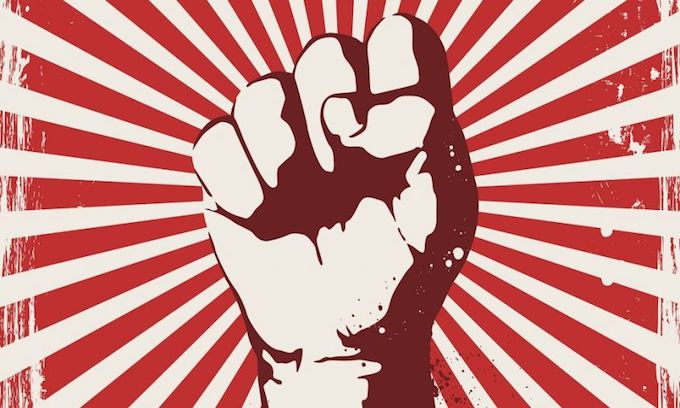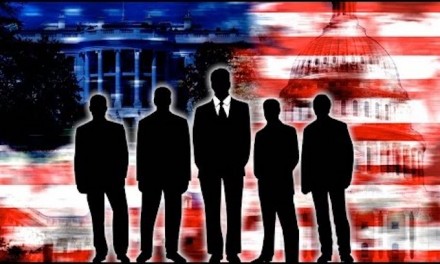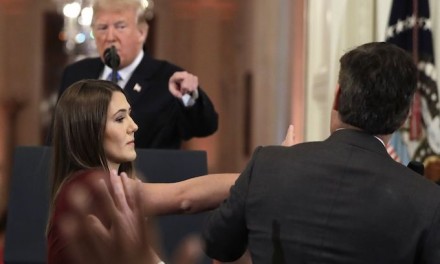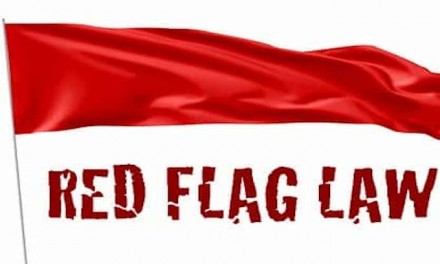If history repeats, the left-wing revolutionary movement of 2020 will soon fade away as another failed attempt to pursue a bad system of governance.
Professed socialist politicians and violent left-wing riots may seem like a new American phenomenon among people living today. Denver has a far-left socialist city councilwoman who denounces capitalism and wants “community ownership of land, labor, resources, and distribution of those resources.” It sounds so avant-garde woke the councilwoman gained instant statewide celebrity status, much like the AOC+3 congressional socialists catapulted to national fame in recent years.
Vermont Sen. Bernie Sanders, a self-described Democratic Socialist, has twice been a viable candidate for the presidency with the support of millions of enthused young followers. Even the anti-war activism of the 1960s did not produce such an open, unapologetic demand for a transition to socialism. For a good chunk of America’s 72 million Baby Boomers, “socialist” and “socialism” have long been pejorative terms so extreme they were used as insults against liberals.
No one today was alive to see it, but the early years of the 1900s made today’s revolution seem relatively weak — especially in Colorado.
El Paso County Clerk and Recorder Chuck Broerman recently found a ballot from Colorado’s 1904 election. Ten “socialist” and “socialist labor” candidates ran against five Republicans, five Democrats, five People’s Party candidates, and five from the Prohibition Party.
The El Paso County ballot of 1904 contained 42 socialists. At least one socialist ran in each of 26 candidate races for president, governor, Congress, state treasurer, attorney general, “superintendent of the public instruction,” University of Colorado regent, sheriff, treasurer, judge, and more.
That election coincided with the Colorado Labor Wars of 1903-04, which began two years after the Western Federation of Miners voted for a “complete revolution of social and economic conditions.” The union fought for the full abolition of the wage system, advocating a socialized mining system in which workers would own the gold they dig up. Owners would lose their investments. As explained in the 1972 book “Colorado’s War on Militant Unionism,” by 1903 the miners’ union was the most militant labor organization in the country.
The union’s strikes and protests became violent and deadly uprisings in Colorado City, Cripple Creek, Idaho Springs, Telluride, Denver, Durango, Victor, and other communities. The governor declared martial law and used the Colorado National Guard, known as “the militia” back then, to suppress the violence.
Battles erupted throughout the two-year war involving miners, mine operators, various labor organizations, private mining contractors, security agencies, pro-business organizations, and the Italian Secret Service. Then-Gov. James Peabody used his national guard and the Italian Secret Service, working through the Italian Consulate in Denver, to deport left-wing union members from union districts. The conflict mostly involved the socialist agenda of the Western Federation of Miners who wanted the government to confiscate mines from corporations and control the means of production.
The conflicts led to gunfights among miners and their detractors, with scenes similar to the Oct.10 shooting of a protester in Denver by a security guard contracted to work for 9News.
In Colorado and throughout much of the rest of the country, the socialist movement of the early 1900s pit Americans against each other. It demonized the people who risked capital in pursuit of the harvesting, invention, and production of valuable goods and commodities. It turned workers against their employers, the lower class against the upper class, and jeopardized middle-class stability.
As we witness today, socialist revolutionaries cause people to contemplate a new economic system that creates “community ownership” of private property, negating the rewards of hard-fought achievements. In the early 1900s, average Americans did not like the proposed revolution and doubled down to defend their own interests — just as middle and upper-class Americans are quickly losing their patience with today’s left-wing rioters. They supported and rewarded politicians who suppressed the violence.
“The unions sowed class consciousness, and it sprang up and destroyed them,” wrote Benjamin McKie Rastall in his 1908 book “The labor history of the Cripple Creek district.”
The United States enables people from around the world, from all potential backgrounds, to pursue unlimited success. The people who succeed, not those who violently threaten them, control the means of production. When forced to contemplate it, most Americans value the rewards of success and the general welfare afforded by our capitalist market. As the young mature and succeed, they tend to age out of socialist chic.
The United States has always rejected socialist movements, for good reason, and probably always will.
___
(c)2020 The Gazette (Colorado Springs, Colo.)
Visit The Gazette (Colorado Springs, Colo.) at www.gazette.com
Distributed by Tribune Content Agency, LLC.
—-
This content is published through a licensing agreement with Acquire Media using its NewsEdge technology.



















Recent Comments